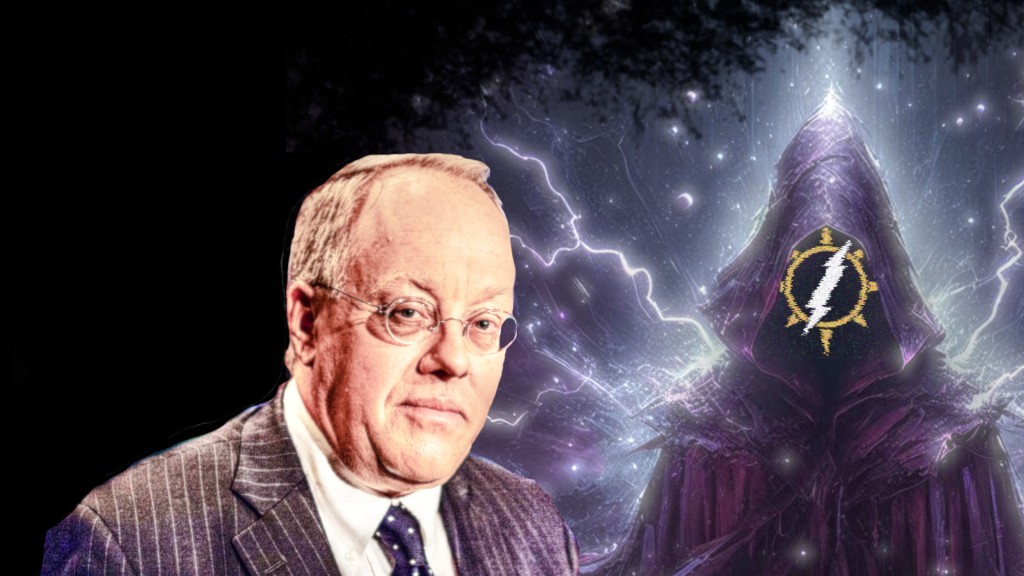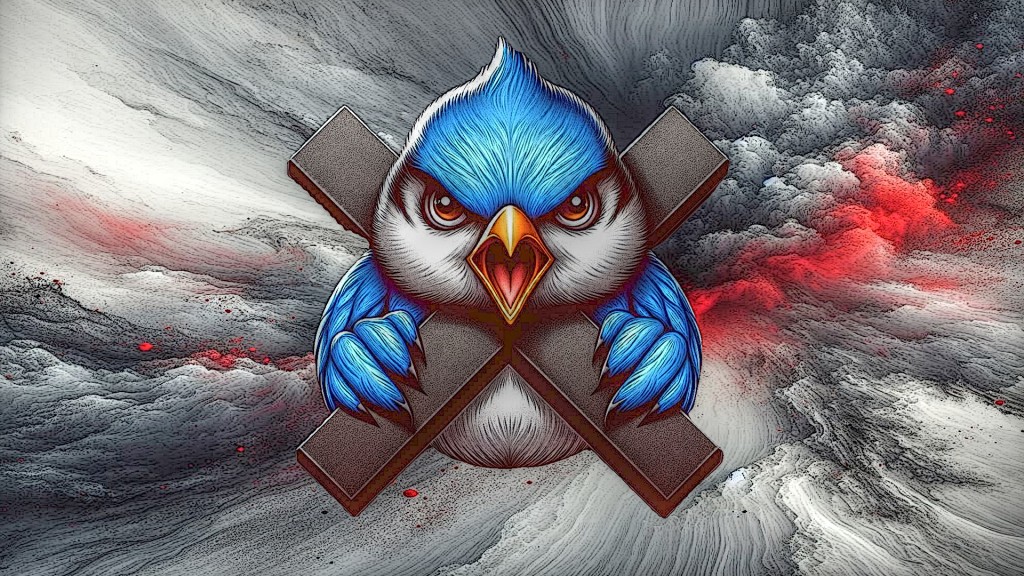Introduction
Words shape perception. That is the ultimate mystical truth of language. The world around us is objective, yet our minds ascribe meaning to it subjectively. A difficulty arises when this concept is applied to fiction. How should an author use language to mimic realities, whether objective or subjective, and thereby have the desired effect upon the perception of the reader? Words, modern and archaic, fantastical of grounded, formal or informal, biased or unbiased, set the stage.
This is true of all works of fiction, but becomes especially true in fantastical works, those stories that take upon themselves the difficult task of portraying the unusual and the imaginative. One might describe cities and people that are like our own in one chapter, while the next delves into worlds of dreams where mortals walk amongst stars, wielding powers near unimaginable as they battle cosmic adversaries. Worlds such as this, so far removed from our own time and space, warrant careful consideration about what sort of words should be used.
This guide represents my own considerations while I wrote my own fantastical novel.
Set the Tone
The first consideration about a fantastical setting is whether you wish to present your work as a high or a low fantasy. A high fantasy (also known as a fictional mythos), focuses on the setting and story, while a low fantasy work focuses on character development and introspection.
Works primarily focused on a mythos often do better with a disembodied narrator, as is found in most classic folklore stories. Narration in this style typically favors formal language. This formal tone can be consistently maintained through a story. This relegates the question of personalized language to character dialogue and introspective thought.
By contrast, works that features high amounts of introspection often favor the use of a perspective character as a narrator, whether in First Person or a Third Person Limited perspective. Thus, the language that is used in descriptions will shift according to which character is narrating a section. For example, if the perspective character is a child, it would be better to use simple language to describe the world. This helps establish to the reader that one is viewing the world through the eyes of a child. By contrast, if your perspective character is a scholar, then formal language and complex introspection helps set the tone. As an additional problem, consider the extent to which the language quirks of a character should be incorporated into their personalized narration.
Here are some things to think about:
– What do people from different social classes sound like?
– Do people from different regions have linguistic quirks or accents? How will you consistently portray this in the words you use?
– Do different races (i.e. humans, elves, dwarves, orks, dragons, etc.) have different ways of speaking?
– Does a race use verbal communication, or does it rely on physical ques such as gestures, changing colors, pheromones, etc.
To give an example, In Within a Hidden Sun I wrote the fae with the language quirk of never using contractions. Because I used Third Person Limited perspective I chose to transfer this quirk to their personalized narration and introspective thoughts. Thus, the narrator for that specific chapter will never use a contraction.
Contractions and Formality
For those in need of a refresher, a contraction is when two words are combined together for the sake of brevity, thus making them easier to pronounce and quicker to write. ‘It’s’ (it is) is an example of a contraction.
An easy way to make a character sound more formal is to reduce the number of contractions when speaking. Done properly, this can give the impression of taking more time to think out a sentence and can be used to emphasize a point. Of course, the exact opposite can be done to make a character sound informal. However, remember that using too few contractions can make a sentence come across as long winded unless done carefully.
If a character never uses contractions, they will come across as foreign or alien. Thus, you can think about what sort of balance should be struck for each character.
The Use of Slang
Every historical period and dialect has slang words that are used alongside traditional words. However, the defining trait of slang words is that they are very much of their own time period, reliant upon a context that is peculiar to a particular group of people. Most of these words and phrases have lifespans that last for mere decades before becoming outdated. Slang words that remain after that become a part of the standard language. For example, consider the phrase: “Radical dude.” Those words immediately conjure up the image of a skater bro from several decades ago. Such a phrase belongs to its time period, becoming odd when used outside of that time (contemporary use of such terms can be considered “ironic”). “What a square,” is an example of beatnik slang from the 50’s and 60’s. While even terms like “dude” continue to see some use, such old beatnik slang is entirely out of date.
“Damn,” is an example of a slang word that has entered into wider use. When originally used as an expletive in the 1800’s, it was more commonly said as “Damnation.” However, it should be pointed out that the slang word in this case was attached to a word in common use.
Unless your setting is based upon a specific historical period or area, it is recommended that you avoid using contemporary slang. Similarly, words and phrases from a language other than the one you are writing in should be avoided, unless they exist in your setting. For example, if Spanish does not exist in your fantasy world, then it is inappropriate for your character to suddenly use a random Spanish word or phrase in place of a natural equivalent. You can imagine that having a character shout “Buenos dias,” or “Loco,” in place of “Good morning,” and “Crazy,” will immediately seem odd and out of place in a fantasy world. Similarly, if you were writing in Spanish, you would not want to use English words like, “Good morning,” or “Crazy,” as slang.
Loanwords
An issue arises when using uncommon words that are technically a part of your language, but are still considered foreign. For example, it would be odd for an elf to suddenly start talking about the bourgeoisie and proletarians. Talking about the wealthy/nobles and commoners/peasants will seem more natural. In a more comedic setting, you could use unexpected elements like an elf talking about proletarians, but in a serious setting it is better to avoid such words.
Note that if a word is technically from a foreign language, but is in common use, it should be fine to use.
Referential Humor/Memes/References
If slang words go out of style quickly, memes and pop culture references fade in a flash. Unless you are writing to a very specific audience, you should not assume that your reader is informed about whatever pop culture element that you are referring to. This means that references should either stand on their own, without their original context, or that you should explain where they come from. Of course, this brings up the issue of the separation between the fantasy world and our own. Unless the two are linked some way, obvious references to our own world, especially if made explicitly, represent the breaking of the fourth wall. While comedic works can get away with breaking the fourth wall, it is something that should be avoided in serious works.
As an example of a reference that stands on its own, consider a man trapped in a world of delusions. The man does not realize that he is trapped until an outside force gives him a glimpse of another world. As the man leaves the world of delusions, he compares the exit to the mouth of a cave. As those philosophically inclined will recognize, this is Plato’s allegory of the cave. Readers familiar with philosophy may well appreciate such an inclusion, while readers unfamiliar with the Platonic reference will still grasp the symbolism behind the mouth of a cave.
References to pop culture characters and contemporary works will age poorly, especially in the long term. Actors, musicians, and popular artists that were common knowledge fifty or a hundred years ago might not even be recognized by the average person now. For most younger readers, the duration of their memory might even be confined to the past decade or two with few exceptions. Thus, unless you are referencing something that is classic or extremely popular, your reference will likely not be understood, rendering it worse than useless. I would also caution against using obvious pastiche characters for this same reason, unless you have a specific reason to use one.
Memes should almost always be avoided because they are references that age very poorly, and which require the reader to be aware of their context. If you can’t remember what memes were popular five or ten years ago, then your readers won’t know them either. The only memes that might deserve a reference are those that achieve an ascendant status, but even then you should exercise caution. If you do use a meme, I recommend using it as a wink-wink reference, one that select people will get, but others can easily overlook.
Real World Contextual Language
The ancient origins of the languages we use are shrouded in mystery and mystique. What can be said about them is that all ancient tongues have developed into many descendant languages, each of which has a context for why specific words developed as they did. Many of the words we use today come from the ancient past. Some come from foreign lands, others from mergers of words, and still others from the names of Gods and heroes. This is where an interesting challenge comes for a writer of a fantastical world. If a word has a distinct association with a real world entity or historical context, then should one use that word in a fantastical world without links to our own?
Consider the following:
“That dwarf is acting like a Nazi”
“The humans are basically communists.”
“The elves are fascists.”
“The elvish paladins just declared a crusade.”
“The dwarfs are going on a jihad.”
“The ork pope just gave me his blessing.”
“The prince is a libertarian.”
“The merchant discussed the merits of fractional reserve banking.”
“The wizards debated the merits of capitalism and socialism.”
None of these examples work because each word depends on a specific historical context to give those terms a meaning. Similar concepts might exist in a fantasy setting, but there is no reason why these words would be used. So, instead of a negative comparison to nazis, communists, fascists, etc, you can say that the person is like a tyrant, authoritarian, oligarch, or whatever similar term you like. Similarly, instead of using crusades and jihads, it would be better to call religious wars divine wars, holy wars, sacred wars, etc. Finally, you should be careful about using titles like “pope” which has a very singular context in the human world. Archbishop is better because, while still inspired by Christianity, it doesn’t immediately conjure up images of Catholicism.
Some other words technically rely intensively on a specific historical context, but have been so separated from that context in language and memory that they can be used without hesitation. For example:
“The group they encountered were cultic zealots.”
– The word zealot originally referred to groups of particularly religious Jewish rebels in Israel who fought against the Romans in the first century AD. However, very few English speakers know about that history, and the word has come to refer to any group that is characterized by zeal.
“We fought for our freedom.”
– Freedom is a word derived from the old Germano-Norse God Frey, used to compare the nature of a man or deed to that of the free spirited God. In the modern context, the word has become separate from that God, so His presence in your fictional work is not required.
“We fought for our liberty.”
– Similar to the above example, liberty is ultimately derived from the Roman God Liber. However, it has once again been separated from the original context to the point that it can be used as one wishes.
Names in Exotic Contexts
A problem that presents itself in exotic contexts is the use of unusual language, whether for names, places, or races. Simply put, the more unfamiliar and exotic a name appears, the harder it is to remember it. This becomes more intense with every exotic character and name that you add.
For example, if you are writing a book for English readers and choose to set it in ancient Egypt or ancient India, using the terminology of that setting and even the names of characters will prove difficult for the reader, requiring them to expend more attention. This applies for every unusual word, philosophical concept, etc. that you place upon them. Thus, you should be careful to avoid overwhelming the reader with unusual words and concepts.
Consider a setting that has ten different races:
Awaxian
Eramia
Gerothaesh
Jadiva
Kaeldiana
Laedivad
Missith
Sertimov
Ternzin
Yuramikal
Compare to using a standard name for each of those races:
Elves
Fairies
Werewolves
Vampires
Goblins
Orks
Dwarfs
Merfolk
Dragon-Men
Devils
As you can see, it is easy to keep track of races with more standard names, while it is difficult to remember the unusually named races. This is not to say authors cannot have oddly named races, however their use should be carefully thought out for the sake of the reader.
Conclusion
I hope this has been a helpful in setting you in the right direction of what language to use in a fantastical setting. There are many other topics that could be touched upon like what poetic forms a race favors, what meter their songs are sung in, whether there is a split between formal pronunciation and low pronunciation of a language, and many other such concepts. It helps your worldbuilding to plot out such considerations, all of which contributes to the success (at least artistically speaking) of a work.





